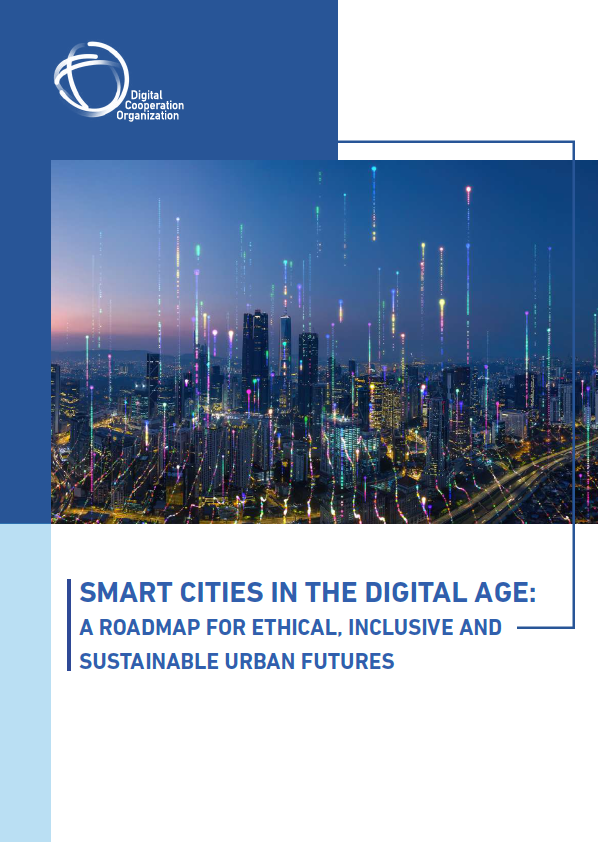
Smart Cities in the Digital Age: A Roadmap for Ethical, Inclusive and Sustainable Urban Futures
September 2025
Digital Public Infrastructure (DPI) is increasingly recognized as a cornerstone for both public and private sector service delivery, driving digital transformation and development globally. Key actors driving this narrative include international organizations such as the UN Development Programme (UNDP), the G20, the Digital Cooperation Organization (DCO), and the International Telecommunication Union (ITU), among others.
Smart cities promise enhanced quality of life, optimal use of resources, and economic innovation by leveraging advanced digital technologies like IoT, AI, and big data. However, the rapid digitalization of urban spaces raises significant challenges, including digital inequality, data privacy concerns, environmental sustainability issues, and the exclusion of vulnerable populations. This paper explores the pivotal role of smart cities in fostering the digital economy while addressing the critical digital technologies’ challenges.
Through a Systematic Literature Review (SLR), this novel study identifies these pressing challenges and maps them to the broader dimensions of inclusivity, human-centric development, and sustainability. Furthermore, it provides a strategic roadmap for governments, businesses, private-sector partnerships, and civil societies, emphasizing the importance of equitable access, ethical governance, and sustainable urban planning. By addressing these challenges, smart cities can evolve into inclusive, human-centered ecosystems that drive sustainable growth in the digital economy.
